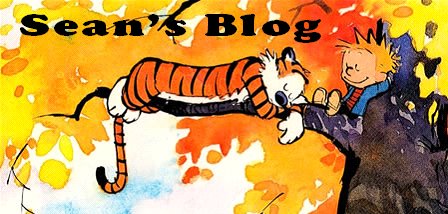Today I grabbed my Strong's Concordance, my bookbag which holds my Bible and journal, and a cigar and headed to the garage. With the garage door half open, my two boys playing in the front yard, and me planted in the back of the garage by the window, I smoked my stogey and dove into the scriptures. As the cool January air hung around me (alot warmer than normal this time of year) and the melancholy smoke danced and twisted above my head, I made some precious discoveries.
I have been hungering to know what the Bible truly says about witnessing and outreach. This is a subject which has recently been very fuzzy and alluding to me lately. I have alot of conflicting information over the years clogging my brain and not alot of clarity as a result on this subject. Its near impossible to have a sincere conviction on any subject without a clear knowledge of what thus says the Lord regarding it.
So I began at John 20 after Christ has risen from the dead and begins appearing to his disciples. The first thing he tells them in John's record is "As the Father has sent me, so I am sending you." He then says "Whoever's sins you forgive, they will be forgiven, and whoever's sins you sustain, they will be sustained." This passage proved to be a good place to start on the topic of sharing the gospel.
As I was reading the full context of these words, I noticed Christ's statement to Peter in chapter 21: "If you love me, feed my lambs." No doubt these words with which Jesus charged Peter also fall within the reaches of the overall subject at hand. Out of curiosity I studied the original Greek words that our Saviour used when speaking to his disciple here. The results I found were an unexpected treasure.
Jesus asks Peter 3 times, "Do you love me?" Then Jesus says, "Feed my lambs." The next two times Jesus follows up his question by saying, "Feed my sheep." It turns out that the 3 statements Christ makes are each using a different combination of words:
1. Shephard my lambs
2. Feed my sheep
3. Shephard my sheep
Here are my initial thoughts on this... First of all, sheep and lambs are the same creature, however lambs are younglings and sheep are full-grown. This spoke to me. The words he used for "Feed" were also different. "Shephard" is used in the first and third statements, but "Feed" is used in the second one. From further study of the original Greek terms, I discovered that the verb (action) "to shephard" is from the root word for the noun (title) "Shephard". This is in contrast to the word for "Feed" which is from a word for cattle which connotates leading a herd to fodder. Shepharding being more tender, personal, gentle, and tender food. Feeding being more impersonal, straightforward, and more filling adult food.
The lambs cannot handle adult food yet and they need more tender loving care. The sheep need real sustenance - adult food, and are grown enough to survive without the personal touch of the shephard. However, the third statement, "Shephard my lambs" is out of the ordinary. It seems that the sheep too, need shepharding. Although they can survive without the tender loving care of their keeper, they still need it. They need the tender touch of their master.
It would also seem that sheep go through stages. As younglings they need light food and the special attention of their shephard. Then when they are fully grown they require heavier food and gain self-sufficiency. However, there are those sheep who are not fooled by their maturity. They realize the need to still take careful and loving direction and tender help from their shephard. They stay close enough to their shephard's side to hear his voice and gain his continual attention.
We as Christians are the same way. Even when we are grown enough to survive on our own, there is a time at which we will realize that the same tender care that we experienced from our Lord when we first came to Him is still important, yes even vital now. But not all will realize this. Most will stay within the protection of the flock, but forget the master's life-giving personal touch... but not all. These few are like the disciple John who was continually found with his head on Jesus' breast, the disciple "Whom Jesus loved." For these, being a mediocre Christian, a simple pew-sitter, and just "getting by" will never be enough. These sheep, although fully grown, will never accept less than the sweet life-giving words and transforming personal touch of their master, whom they serve in secret.
For those called to be shephards, like myself (however much I don't like it sometimes), there is much to be learned from Christ's statements about how to effectively minister to his flock. But for today, I have gained much from seeing this from the sheep's perspective.

No comments:
Post a Comment